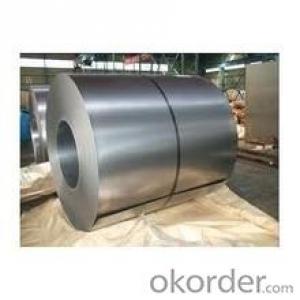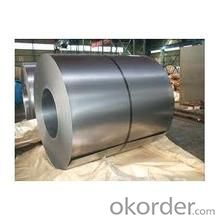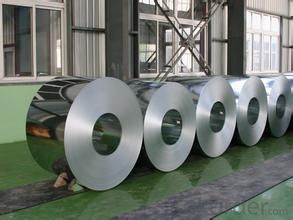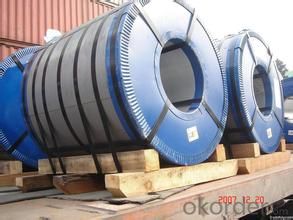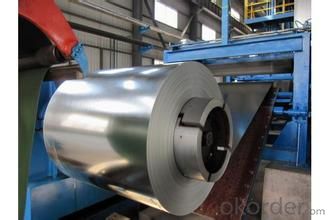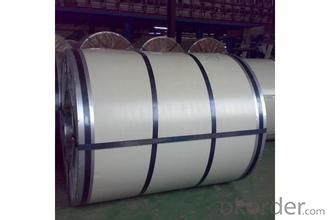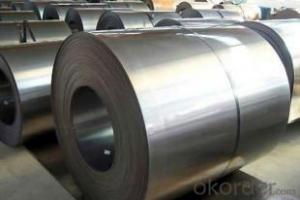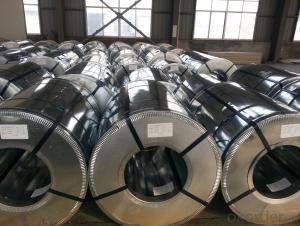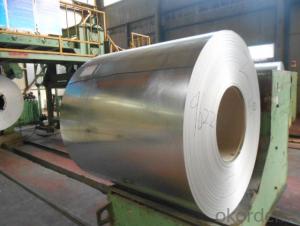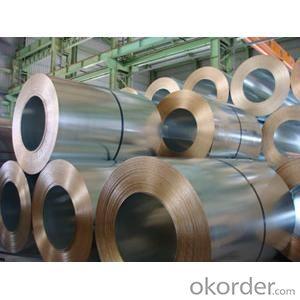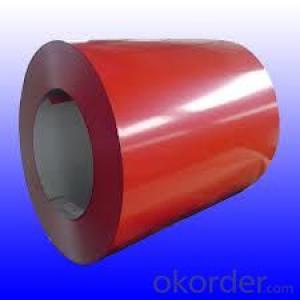hot-dip galvanized/ aluzinc steel in China
- Loading Port:
- Tianjin
- Payment Terms:
- TT OR LC
- Min Order Qty:
- 20 m.t.
- Supply Capability:
- 5000000 m.t./month
OKorder Service Pledge
OKorder Financial Service
You Might Also Like
Description:
Hot-dip galvanized steel coils are available with a pure zinc coating through the hot-dip galvanizing process. It offers the economy, strength and formability of steel combined with the corrosion resistance of zinc. The hot-dip process is the process by which steel gets coated in layers of zinc to protect against rust. It is especially useful for countless outdoor and industrial applications.
Standard: | AISI,ASTM,BS,DIN,GB,JIS | Grade: | SGCC,DX51D/DX52D/S250,280GD | Thickness: | 0.12-4.0 mm |
Place of Origin: | Brand Name: | N/M | Model Number: | ssp-226 | |
Type: | Steel Coil | Technique: | Cold Rolled | Surface Treatment: | galvanized/ Galvalume/zinc coatting |
Application: | strong anti-corrosion ability,cold bending molded manufacturablity | Special Use: | High-strength Steel Plate | Width: | 600-1250 mm |
Length: | in coil | product: | g40 prime/secordary hot-dip galvanized cold rolled steel coil/sheet |
|
|
Packaging & Delivery |
|
|
|
|
|
Packaging Detail: | standard export package,Other types of packing can be customized as per client's requirement. | ||||
Delivery Detail: | as per client's requirements | ||||
Service:
1,on time delivery
2,high quality with competitive price
3,good service
4,long-term cooperation
5, rely on honors
- Q: What are the factors affecting the strength of steel coils?
- There are several factors that can affect the strength of steel coils. 1. Steel Grade: The type and quality of the steel used in the coils plays a significant role in determining their strength. Different steel grades have varying levels of carbon content, alloying elements, and heat treatment processes, which can impact the overall strength and durability of the coils. 2. Manufacturing Process: The way in which the steel coils are manufactured can also affect their strength. Factors such as the temperature and duration of the heat treatment, the rolling and annealing processes, and the level of cold working can all influence the final strength of the coils. 3. Thickness and Width: The thickness and width of the steel coils can affect their strength. Thicker coils tend to be stronger and more resistant to deformation, while wider coils may exhibit variations in strength across their surface. 4. Surface Quality: The condition of the coil's surface, including any imperfections or defects, can influence its strength. Surface defects such as scratches, pits, or corrosion can act as stress concentration points, reducing the overall strength of the coil. 5. Storage and Handling: The way in which the coils are stored and handled can impact their strength. Factors such as exposure to moisture, extreme temperatures, or improper stacking and transportation can lead to deformation or damage, decreasing the strength of the coils. 6. Environmental Conditions: Environmental factors such as humidity, temperature, and exposure to corrosive agents can also affect the strength of steel coils. In harsh environments, the coils may experience accelerated corrosion, leading to a decrease in their strength over time. It is important to consider these factors when selecting and utilizing steel coils to ensure that they meet the required strength specifications for the intended application.
- Q: why do you need to heat steel when hardening, molecules etc etc
- Heat treatment deforms the crystal micro structure of the Steel. With heat (and cold) treatment the organisation or Diffusion of the micro particles can be manipulated. There is a higher concentration of particles after heat treatment, thus making the micro structure of the steel more dense, and the physical performance of the steel better. Stronger. Hope this helps ! Please like.
- Q: I've heard on some 1911 forums that the slides of Armscor guns are now extruded. What is extruded steel? How is it made? Are they strong (4140carbon steel was used in the process).
- Extruded steel is only the steel being run through a die when it is heated, it usually reduces the size of the grain of the steel itself, enhancing toughness. Realistically though, in a handgun, it doesn't matter if the frame is cast or forged, both types will hold up to any amount of abuse, unless you use it as a sledgehammer, and are splitting stones with it, then the forged frame would win. 4140 is more than adequate for a slide/frame. Hell, even mild steel would be adequate as long as you don't mind some dings and scratches, and again, don't use it as a sledgehammer...
- Q: What are the dimensions of steel coils used in the industrial machinery industry?
- The dimensions of steel coils used in the industrial machinery industry can vary depending on the specific application and requirements. However, generally speaking, steel coils used in this industry typically have a width ranging from 600 to 2,000 millimeters (24 to 79 inches) and a weight ranging from 2 to 25 metric tons (4,400 to 55,100 pounds). The inner diameter of the coil, known as the core, can range from 508 to 762 millimeters (20 to 30 inches). Additionally, the thickness of the steel coil can range from 0.4 to 25 millimeters (0.016 to 0.98 inches). These dimensions may be subject to variations based on the specific needs and specifications of the machinery being manufactured or used in the industrial machinery industry.
- Q: What are the dimensions of steel coils used in the construction materials industry?
- The dimensions of steel coils used in the construction materials industry can vary depending on the specific application and requirements. However, common dimensions for steel coils in this industry range from 0.5mm to 3mm in thickness and 600mm to 2000mm in width. The length of steel coils can vary, but it is typically between 1000mm to 6000mm.
- Q: Can steel coils be coated with PVC?
- Yes, steel coils can be coated with PVC. PVC coating provides added protection against corrosion and increases durability and longevity of the steel coils.
- Q: What are the different methods of leveling steel coils?
- There are several methods of leveling steel coils, including roller leveling, stretcher leveling, and tension leveling. Roller leveling uses a series of rollers to gradually bend the steel to achieve a flat surface. Stretcher leveling involves stretching the steel through hydraulic or mechanical means to remove any residual stresses and straighten it. Tension leveling applies tension to the steel coil while passing it through a series of rollers, effectively elongating the material to remove any waviness or curvature.
- Q: I have an old classical guitar, which uses nylon strings. ive never really liked the sound produced by the nylon, so im curious if you can use a classical guitar with acoustic guitar steel strings. thanks!
- DO NOT put steel strings on a nylon strung guitar. Doing so will certainly damage the guitar and the bridge could be pulled off and cause a serious injury.
- Q: How are steel coils used in the manufacturing of chassis frames?
- Steel coils are used in the manufacturing of chassis frames by being processed and formed into specific shapes and dimensions. The coils are first uncoiled and then passed through various machines to cut, bend, and weld them into the desired frame structure. This process ensures that the chassis frame is strong, durable, and able to withstand the demands of a vehicle's weight and functionality.
- Q: aLSO, DOES STEEL C45 REFER TO THE CARBON IN IT?ALSO, WHAT IS AIRCRAFT GRADE PLYWOOD AND WHERE DOES ONE GET IT
- chromium nickle steel aka stainless steel exact amount of chrome and nickle will determine type/grade numbers Check the google for steel type/grade Never head of aircraft grade, however,, there is marine grade - normally baltic birch with waterproof glue and no defects i.e. knots, etc. Very strong (also quite expensive) but worth it for the correct applications
Send your message to us
hot-dip galvanized/ aluzinc steel in China
- Loading Port:
- Tianjin
- Payment Terms:
- TT OR LC
- Min Order Qty:
- 20 m.t.
- Supply Capability:
- 5000000 m.t./month
OKorder Service Pledge
OKorder Financial Service
Similar products
Hot products
Hot Searches
Related keywords
